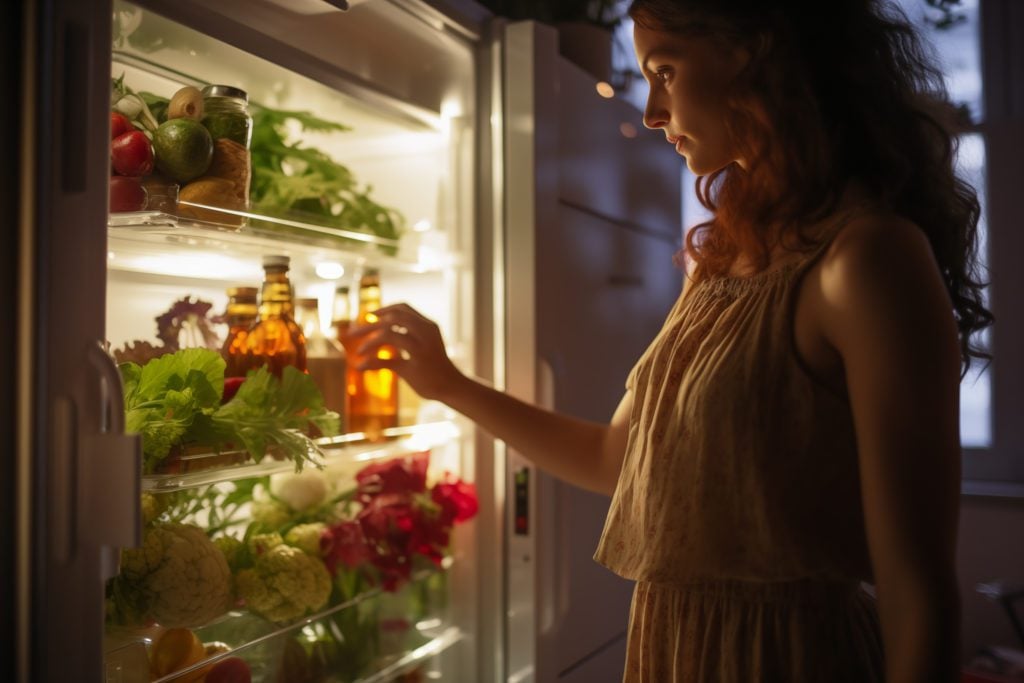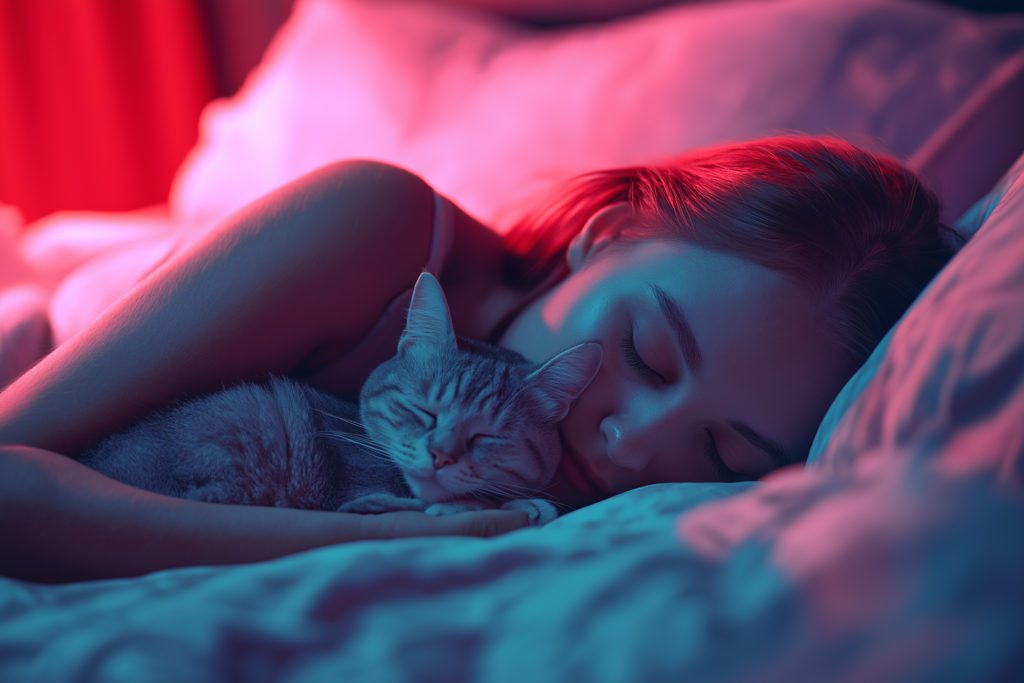
Flatulence and Sleep Hygiene:
Tips for Minimizing Disruption to Your Rest
Farting in sleep is common. It’s caused by eating habits mainly. If flatulence occurs often, it can disrupt your sleep. Watching what you eat and when you eat can help. Over-the-counter medications can also reduce flatulence.

Have you noticed that you are all of a sudden gassy the moment your head hits the pillow? It’s common to be gassy at bedtime. This isn’t something that we just do during the day. Gas builds up as your body digests the food that you ate during the day. The gas may then escape while you are sleeping. If gas is really bad at night, it can even keep you from falling asleep.
In this article, we’ll talk about why you are more likely to pass gas while you sleep, and how to keep it from disrupting your sleep.
Can You Fart in Your Sleep?
People often fart in their sleep, although they don’t usually realize it. Sometimes a person will hear themselves fart and wake up — if they aren’t in a very deep sleep. But, most often a sleep partner will tell them.
Do People Fart More at Night?
Most people fart up to 14 times a day. People with certain disorders like irritable bowel syndrome (IBS) or Crohn’s disease may fart more often. You may be more likely to fart at night because the anal sphincter relaxes to a greater degree when you sleep. This can cause a small amount of gas to escape from the body.
What Causes Bedtime Farting?
People fart in their sleep for the same reasons that they do while awake. Most of the time, farting occurs because of what you ate. Sometimes it is due to stomach acid or swallowed air. There are also foods and lifestyle factors that may make you more likely to fart when you are drifting off to sleep.
Fiber
Fiber is an important part of a healthy diet. This carbohydrate helps your stool pass more easily. It helps keep blood sugar in check. However, eating too much fiber close to bedtime can cause bloating and gas, especially if you don’t normally have a high-fiber diet. Foods high in fiber — and common culprits of farting include beans, lentils, vegetables, fruits, and whole grains.
Carbonated Drinks
Carbonated soda, beer, or sparkling water can cause you to feel bloated and gassy. Drinking these beverages right before bed is quite likely to lead to nighttime gas. That is because carbonated sodas contain carbon dioxide, which transforms into a gas inside your stomach.
High-Fat Foods
Foods high in fat are harder for your body to digest and tend to sit in your digestive tract for a longer period of time, as a result. So, eating these foods before bed can lead to gas. Examples of high-fat foods include fried foods, cheese, and oils.
Constipation
If you are constipated, it can cause gas that worsens at bedtime. That is because you are eating food throughout the day, which is not moving through your digestive system. The longer you are constipated, the more gas you will have.
A Large Dinner
Some people have a smaller breakfast and lunch and enjoy most of their calories at dinner. Having a large meal just before bed can greatly increase the risk of nighttime digestive problems, including flatulence.
Eating Too Fast
Eating dinner too quickly can lead to bedtime gas. When you eat quickly, it causes you to swallow more air. This leads to air bubbles in your stomach which cause gas and bloating. Eating quickly is easy to do. You might not even realize that you are doing it.
How To Reduce Nighttime Farting
You can reduce the chance of farting at bedtime and in your sleep by making some small lifestyle changes.
Keep a Food Journal
One of the first things that you should do if you have a lot of flatulence at night is to keep a log of what you eat — especially for dinner or in the evening. This can help you identify the food culprit causing your gas. Record how much and what kind of food you eat.
Treat Constipation
If you are constipated, talk to your doctor about treatment options. They may recommend stool softeners, such as Docusate, or laxatives. If over-the-counter treatments don’t help, your doctor may recommend a prescription medication like lubiprostone. Once you have relieved the constipation, that should help with nighttime gas.
Pay Attention to the Clock
Schedule dinner at least 3 hours before bedtime. This will give your body time to digest your meal so that you aren’t kept up with gas or indigestion. Eating earlier in the day will help you sleep better too.
Drink Plenty of Fluids
Drinking plenty of water and other fluids throughout the day will help push high-fiber foods through your digestive system more easily. This will help decrease gas. However, make sure you avoid carbonated beverages.
Eat More Mindfully
Try to eat dinner at least three hours before bedtime. Have a ‘no screens’ rule while eating. When you eat, slow down. Take smaller bites and put your fork down in between bites. You will enjoy your food more and have less gas.
Take a Pill
If you do have gas right before bed, you can use over-the-counter gas relief pills like Gas-X or Beano. These products quickly break up gas bubbles in the stomach. This will relieve painful gas and excessive bloating. The effects of these pills only last a few hours, so if your gas is bad, it still might interrupt your sleep.
Move a Bit
Light physical activity after eating stimulates the intestines and stomach. This helps food and gas move through your digestive system, and reduces gas and bloating. So, after you eat dinner, go for a short walk.
When to See a Doctor?
You should see a doctor if you have uncomfortable gas that isn’t getting better. Also, see your primary care physician if:
- The flatulence is painful.
- You have abdominal pain and vomiting, as well.
- You have flatulence that interferes with your sleep.
- You also have bloody diarrhea.
- You have extreme bloating.
In some cases, it could be an underlying condition that is causing the excessive gas. Treating this condition can relieve uncomfortable nighttime gas.

Written by
Emily Mendez
Emily Mendez is a former therapist and mental health author. She is one of the leading voices in mental health. Emily's writing has appeared in eCounseling, SonderMind, and more. Emily is frequently interviewed by Healthline, Fatherly, INSIDER, Family Circle, and other national media for her advice and expert opinion on the latest mental health topics.
Download Pillow
Get help
Press & News
Legal
Connect
X (Twitter)
Company
Copyright © Neybox Digital Ltd.



